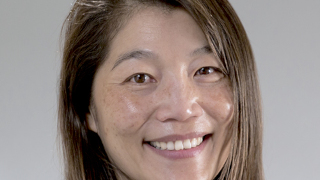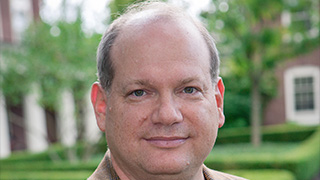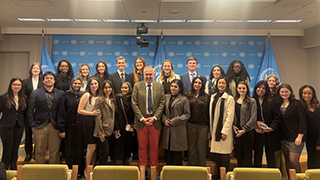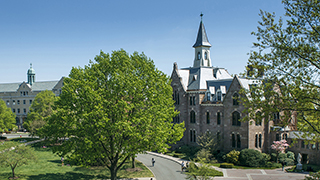AAPI Heritage Lecture Provides Historical Context on Rise of Anti-Asian Sentiment - Seton Hall University
Wednesday, May 12, 2021

Dr. Anne Giblin Gedacht, Assistant Professor, Department of History and Affiliated Faculty, Asian Studies Program, opened the program by welcoming Dr. Cheng and thanking participants for attending. Dr. Cheng is a Professor of History and the Asian American Studies program director at the University of Wisconsin-Madison. Her first book, Citizens of Asian America: Democracy and Race during the Cold War, explored how Asian Americans shaped the credibility of U.S. democracy during the early Cold War years. Her current project, titled "Rebuilding California's Skid Row Neighborhoods: Southeast Asian and Central American Refugees and the Growth of the Homeless Population in the United States, 1945-1980," examines how the residence of Southeast Asian families in the Tenderloin of San Francisco and Central American families in Skid Row, Los Angeles shaped the development of these locales.
Dr. Cheng's talk examined how Asian American history operates in the present. Since the mass outbreak of the pandemic in the U.S., the number of reported cases of violence against Asian Americans has increased dramatically. The advocacy center, Stop AAPI Hate, reports nearly 3,800 hate incidents against the Asian community over the last year. Of the reported incidents, Asian American women were 2 ½ times more likely to be targets of verbal assaults and physical attacks than Asian American men. This surge of anti-Asian sentiment has scholars and community activists interrogate how the calling of Covid-19, the "Chinese virus" or the "Kung Flu," promoted discriminatory actions against Asian Americans.
Dr. Cheng's informative talk addressed abounding questions on why Asians in the U.S. who are not from Wuhan and have never been there are unduly blamed for the outbreak of the pandemic. She provided the historical context for understanding the rise of anti-Asian sentiment amid the Covid-19 pandemic that stems from Asian stereotypes portrayed in the media, specifically in film and advertisement.
"Now more than ever it is important for all Americans to learn of the long history of anti-Asian violence in this country," said Dr. Giblin Gedacht. "Dr. Cheng provided much needed context for our students, staff, faculty, and SOMa community members about the systemic racial discrimination against members of the AAPI community. Bringing such a prominent scholar to campus was an important first step, and I look forward to exploring the diverse and complex cultures of Asia with the SHU community through our ongoing AAPI Heritage Month celebrations."
In response to the increase of hate speech and violence on the AAPI community, the DEI Committee hosted a Community Healing and Reflection event on March 24 and participated in a student-led Anti-Asian Violence Vigil and Roundtable Discussion on April 9. The DEI Committee will launch its Anti-Asian Racism Training on May 21 at 10:30 a.m. All are welcome to attend.
Community members are invited to continue to celebrate AAPI Heritage this month through additional programming listed on the AAPI Heritage Month website.
For more information or to get involved, please contact the Diversity, Equity & Inclusion Committee.
Categories: Arts and Culture, Education, Nation and World






